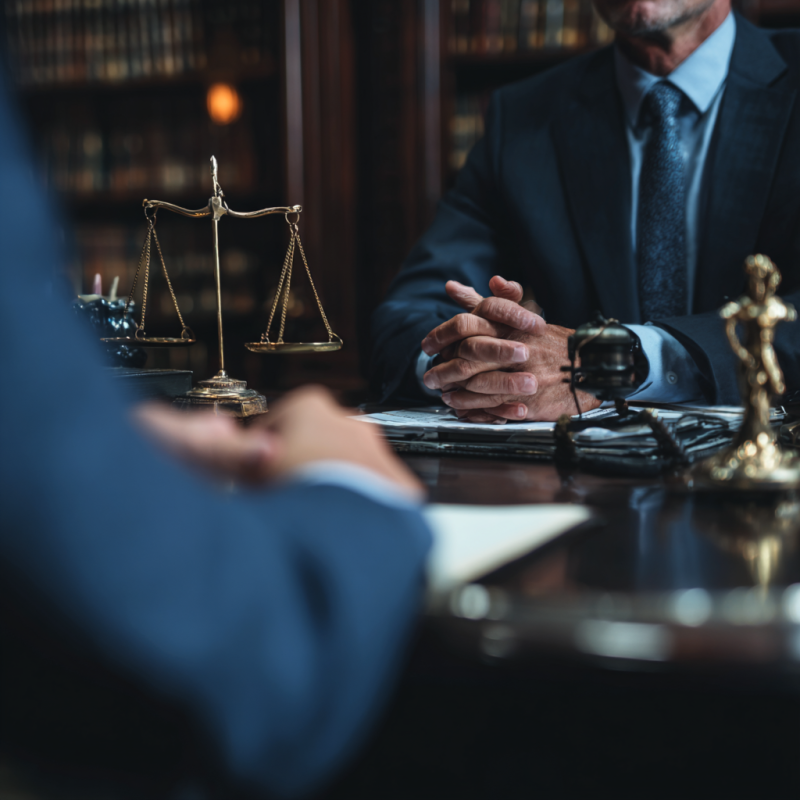What Does a Personal Injury Lawyer Do Near Me?

Understanding What Does a Personal Injury Lawyer Do Near Me
Each year, about 4 million Americans file injury claims (Insurance Information Institute, 2024). If you’ve been hurt in a car crash, slip-and-fall, or another accident, a local attorney can guide you through complex laws and insurance negotiations. By handling paperwork, gathering evidence, and fighting for fair compensation, they help you focus on recovery instead of legal hurdles. You’ll learn What Does a Personal Injury Lawyer Do Near Me
Your personal injury lawyer acts as both advisor and advocate. In this article, you’ll learn the core services they provide, when to reach out, and how to choose the right counsel for your case.
Assess your case
A trusted injury attorney starts by evaluating the merits of your claim. This step lays the groundwork for everything that follows.
Case evaluation
During your first meeting, the lawyer reviews police reports, medical records, and witness statements. They’ll ask detailed questions about how the accident happened, where you were injured, and any out-of-pocket costs you’ve incurred.
Determining liability
Next, your attorney identifies who may be at fault. That could be a negligent driver, property owner, or manufacturer. By analyzing evidence and relevant laws, they assess whether you have a strong basis to pursue damages.
Handle legal filings and deadlines
Missed deadlines can jeopardize your entire claim. A local injury attorney ensures all forms reach the right court or agency on time.
Preparing paperwork
Your lawyer drafts and files the complaint, summons, and any required supporting documents. They also handle routine filings like notices of appearance and discovery requests.
Meeting statutes of limitation
Each state sets a deadline of often two years for filing a personal injury lawsuit. Your attorney tracks these limits and warns you if your window to sue is closing (you can learn more about timing when I should hire a personal injury attorney near me).
Negotiate with insurance companies
Insurance adjusters aim to settle quickly and for as little as possible. Your lawyer levels the playing field.
Crafting demand letters
After calculating your damages, the attorney sends a formal demand letter to the insurer. It outlines your injuries, medical expenses, lost wages, and other costs, backed by documentation.
Settlement discussions
Your lawyer handles all calls and meetings with the insurance company. They counter lowball offers with data, such as hospital bills and expert opinions, to push for fair compensation.
Represent you in court
If negotiations stall, your attorney prepares to litigate. Less than 5% of claims go to trial, but having a skilled litigator ready can motivate insurers to settle (Bureau of Justice Statistics, 2023).
Litigation process
From filing motions to attending status hearings, your lawyer manages every step. They interview expert witnesses, depose parties, and gather further evidence to bolster your case.
Trial preparation
When the trial date nears, your attorney organizes exhibits, drafts opening statements, and prepares you for courtroom testimony. Their goal is to present a clear, convincing story to the judge or jury.
Help maximize your compensation
A seasoned personal injury lawyer uses all available tools to increase your award.
Calculating damages
Beyond medical bills and lost income, attorneys factor in pain and suffering, future care costs, and loss of enjoyment of life. A 2022 study found cases with legal representation recover 3.5 times more than unrepresented claims (American Bar Association).
Access to experts
Local counsel often works with medical specialists, accident reconstruction engineers, and vocational experts. Their testimony can strengthen your claim and justify higher damages.
Choose the right personal injury counsel
Not all lawyers offer the same level of service. Here’s what to look for when you search for a personal injury attorney near me.
- Experience in your case type, such as car accidents or premises liability
- Track record of settlements and verdicts in your region
- Transparent fee structure (many work on contingency, meaning you pay only if you win)
- Clear communication style and responsiveness
Consider scheduling consultations with two or three attorneys. Ask about their approach, past results, and estimated timeline. (See our guide on how to find a personal injury lawyer near me.)
What Does a Personal Injury Lawyer Do Near Me?
So, what does a personal injury lawyer do near me? From evaluating your case to negotiating with insurers and representing you in court, they provide full-service support throughout your claim. They meet deadlines, manage paperwork, work with experts, and fight to maximize your compensation. With the right legal partner, you can focus on recovery and trust the legal side is in good hands.
Ready to Connect With a Personal Injury Lawyer Near Me?
If you’re dealing with medical bills, lost wages, or confusing insurance calls, now’s the time. Don’t handle it alone, reach out to a personal injury lawyer near me and get the expert support you need to move forward confidently.
Frequently Asked Questions
1. What types of accidents do local injury lawyers handle?
Most practice in motor vehicle collisions, slip-and-falls, workplace injuries, defective products, and medical malpractice.
2. How to find a personal injury lawyer near me?
Start with state bar directories, local referrals, and online reviews. Compare attorney experience, case results, and client feedback. Schedule free consultations with two or three lawyers to evaluate their communication style, fee structure, and familiarity with local courts.
3. How much does a personal injury lawyer cost near me?
Most personal injury lawyers charge contingency fees, typically 33%–40% of your settlement. You pay only if they win. Ask about additional expenses such as court filing fees, expert reports, and investigation costs to understand your complete financial responsibility.
4. What should I ask a personal injury attorney near me?
Ask about years of personal injury experience, success rates, and similar case outcomes. Clarify their contingency fee percentage, trial versus settlement strategy, and communication frequency. Inquire who manages your file and whether they have strong knowledge of local courts.
5.When should I hire a personal injury attorney near me?
Hire a personal injury attorney as soon as possible after an accident, especially with serious injuries, disputed liability, or uncooperative insurers. Acting quickly preserves evidence, avoids missed filing deadlines, and maximizes your chances of fair compensation for damages.
Key takeaways
- A local attorney evaluates your claim and identifies who’s at fault.
- They manage filings and deadlines to keep your case on track.
- Skilled negotiators handle demand letters and insurer discussions.
- If needed, your lawyer prepares for trial and presents evidence.
- Access to experts and thorough damage calculations boost your compensation.
- Most injury lawyers work on contingency, so you pay only if you win.
